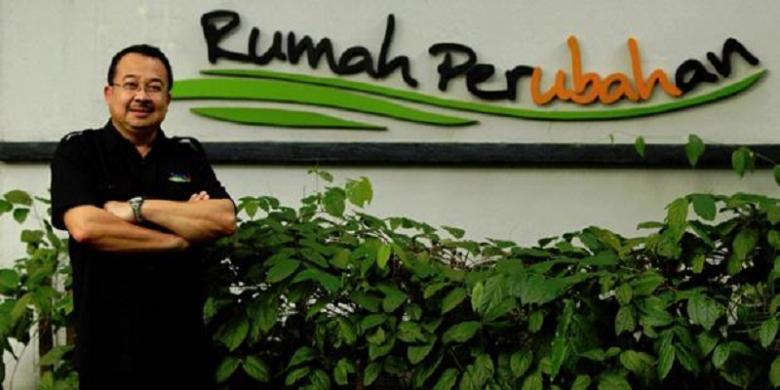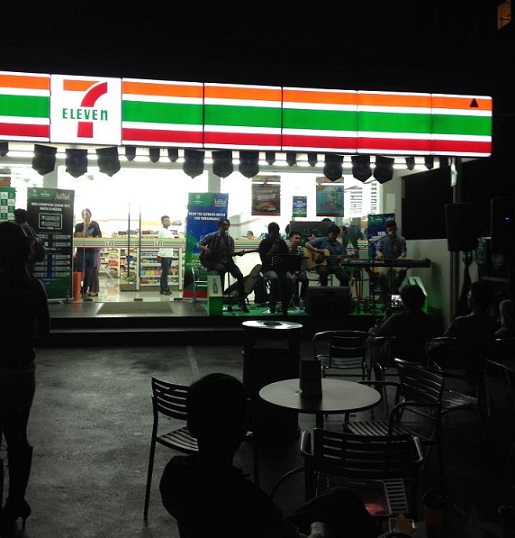@Rhenald_Kasali

Terinspirasi oleh berita-berita mengenai Jokowi, setahun belakangan ini banyak CEO yang memberi instruksi agar para manajer tidak asyik memimpin dari balik mejanya saja. Istilahblusukan seperti merasuk ke semua lini corporate leadership. Namun, mengapa di panggung politik, hal ini jadi gunjingan negatif?
Seorang pengusaha ritel dan properti malah membawa isublusukan dan rapat pimpinan nasionalnya. Dengan blusukan, ia mengaku mendapatkan banyak insight mengenai hambatan-hambatan di lini bawah.
Di dunia internasional, dua tahun lalu, CEO Randall House, Ron Hunter, dalam presidential letter-nya mengutip anjuran Tom Peter yang bukunya menjadi New York Times Best Seller, In Search of Excellence. Di situ Tom Peter memperkenalkan istilah MWBA:management by walking around. Apa lagi bahasa Indonesianya ya kalau bukan blusukan?
Karena itu pulalah, salah satu program TV dari CBS yang sangat menyentuh diberi judul Undercover Boss. Persis seperti Jokowi atau Ahok yang menegur kepala-kepala daerahnya, di situ ditunjukkan keberpihakan para bos terhadap “rakyat kecil” yang telah bekerja keras untuk perusahaan.
Program TV Undercover Boss belakangan juga ditiru di banyak negara, menggambarkan bagaimana para CEO turun sendiri ke bawah. Di CBS sendiri, acara ini sudah dibuat dalam lebih dari 60 episode (ratingnya 5,6-6,5/10), mulai dari bidang pengolahan sampah, hamburger, sampai American Online (AOL).
“Going undercover gives you the chance to really connect with your worker,” ujar CEO AOL.
Soeharto, Sumarlin, dan Gus Dur
Dulu, pada eranya, Pak Harto juga sesekali melakukan blusukan. Karena hanya ada TVRI, maka “turba” (istilahnya waktu itu "turun ke bawah") tidak banyak diikuti wartawan.
Dalam buku Pak Harto: The Untold Stories (Gramedia, Pustaka Utama, 2011) misalnya, bisa dibaca kisah blusukan-nya mengatasi penyakit kelaparan (HO) di Gunung Kidul (1972). Pada masa itu, pejabat-pejabat tinggi terbiasa membuat laporan ABS (asal bapak senang). "Tak ada HO, yang ada hanya KKM, kemungkinan kurang makan," begitulah laporan pejabat.
Namun, kisah blusukan paling menarik kala itu dilakukan secaraundercover oleh Menteri Penertiban dan Pendayagunaan Aparatur Negara Prof Sumarlin. Berpeci hitam seperti PNS golongan 1 A, Sumarlin menyamar sebagai Ahmad Sidik di depan meja pembayaran RSCM.
Dari blusukan itulah terungkap betapa kejinya perlakuan petugas Kantor Bendahara Negara terhadap pegawai rendahan. Untuk mencairkan gajinya yang sudah rendah, mereka dikenakan pungli (bisa dibaca dalam buku JB Sumarlin: Cabe Rawit yang Lahir Di Sawah, Penerbit Kompas, 2013).
Berkat metode itulah, para pemimpin mampu membaca persoalan-persoalan masyarakat. Maklum, kalau tak turun ke bawah, keputusan hanya dibentuk oleh informasi orang-orang kuat yang akhirnya justru bisa merugikan masyarakat. Maka dari itu, saya tak heran kalau banyak politisi yang mengejek cara yang ditempuh Jokowi belakangan ini.
Namun, kisah blusukan yang paling ramai dibicarakan justru ada di era Gus Dur. Dalam 20 bulan pemerintahannya (1999-2001), Gus Dur blusukan keluar negeri sebanyak 80 kali. Mengapa ke luar negeri?
Ceritanya begini. Tak lama setelah beralih menjadi negeri demokrasi, Indonesia tak luput dari ancaman perpecahan, separatisme. Terlebih lagi, Timor Leste baru saja merdeka, sementara Aceh dan Papua terancam melepaskan diri.
Kepada saya, mendiang Gus Dur menegaskan bahwa blusukan-nya itu dilakukan untuk mencegah dukungan asing terhadap separatisme di Indonesia.
Jadi meski dikritik habis-habisan, saya kira kita patut bersyukur NKRI aman di tangan pemimpin yang bekerja keras dan teguh menjaga kerukunan dan kebinekaan. Harap maklum pula, blusukan bisa dilakukan dalam banyak bentuk. Bisa penyamaran ataupun terbuka, baik dengan maupun tanpa pers.
Namun, blusukan tidak dapat diwakilkan karena pemimpin butuhfirst hand information. Blusukan juga harus dilakukan secara spontan agar keadaan lapangan tidak direkayasa oleh bawahan.
Memang dalam beberapa hal terjadi kompromi, seperti kunjungan Gus Dur ke luar negeri, yang mau tak mau harus dipersiapkan protokolernya.
Kritik dan perbaikan
Sayang sekali, belakangan ini istilah blusukan seperti jadi bahan cemoohan dalam debat publik karena kepentingan politik. Saya sendiri tetap berpikir, siapa pun presidennya, mereka harus rajin turun ke bawah kalau benar-benar berpihak pada rakyat dan pegawai-pegawai kecil.
Tidak fair kalau pemimpin hanya blusukan saat kampanye, dan setelah itu hanya memimpin dari Bina Graha, lewat pidato yang gagah, dari depan kamera yang sejuk atau dari jet pribadinya yang tak pernah kena macet. Indonesia adalah sebuaharchipelago terbesar di dunia dan tak akan pernah habis untuk dikunjungi.
Bahwa blusukan saja tak bisa memecahkan masalah, itu sudah pasti. Pemimpin besar tak akan pernah bisa memecahkan masalahnya sendirian. Ia butuh tim yang solid, yang semuanya bekerja keras dan mau diperintah. Ia butuh strategi yang mampu memobilisasi kekuatan besar. Namun, apalah artinya strategi besar kalau eksekusinya buruk atau tak sampai ke bawah.
Itulah PR bagi para pemimpin. Jadi pemimpin itu jangan hanya memelototi harga saham, perubahan nilai aset, selisih kurs, atau inflasi belaka. Rezeki bangsa ini berasal dari lini bawah, yang kita sebut the bottom line....
